National
Committee Hearing Exposes Trudeau’s Political Spin on Foreign Interference
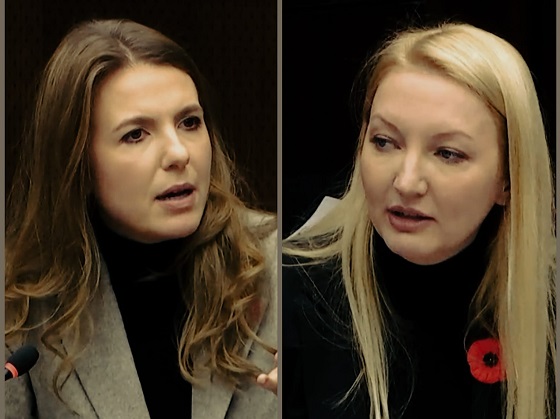
In a Circus of Leaks, Double Standards, and Evasions, Conservatives Call Out the Trudeau Government for Putting International Optics Over Canadian Sovereignty
In Canada’s recent hearing with the Standing Committee on Public Safety and National Security (SECU) on alleged interference by Indian government-linked agents, what should have been a serious inquiry into national security turned into a Liberal-led circus of deflections, double standards, and selective outrage. The Trudeau government trotted out high-ranking officials—representatives from CSIS, the RCMP, the Privy Council Office, and Global Affairs Canada—who were there to answer for the alleged interference tactics targeting Canadians. And to top it off, they were asked why, instead of informing Canadians directly, they’d chosen to leak the intel to The Washington Post. Why were Canadians the last to know about threats on their own soil? And why did a foreign newspaper get the scoop on a story affecting Canadian sovereignty?
At issue were allegations that Indian agents had been involved in intimidation tactics and organized criminal activities targeting Canada’s Sikh community, particularly those sympathetic to the separatist movement. The committee also questioned why the Trudeau government’s response has been to selectively leak this information to American media, while keeping Canadians in the dark about similar threats from other foreign governments—particularly China.
The Leaks to The Washington Post: Information for Foreign Press, Silence for Canadians
Instead of informing Canadians directly, the Trudeau government decided it was a better idea to leak details about alleged Indian interference to The Washington Post, claiming it was to combat “misinformation” internationally. Let’s pause for a moment—this is Canada we’re talking about, and the government feels it’s necessary to share news about threats to Canadians with foreign media instead of Canadians themselves. That selective leak didn’t go unnoticed by Conservative MPs, especially Raquel Dancho. Dancho took the PCO to task, asking why, when it’s Indian interference, they rush to get the word out to American media, but when it comes to Chinese interference, they hide behind “national security.” Canadians watching this hearing saw the hypocrisy plain as day.
Then enter Jennifer O’Connell. She wasn’t there to press for answers—she was there to protect the government narrative. Instead of holding the PCO accountable, O’Connell fed them a lifeline with soft, scripted questions. She was practically giving them cue cards. She asked them to “explain” the reasoning behind the leak to The Washington Post, letting the PCO offer up the excuse of “controlling the narrative.” Controlling the narrative? You don’t say. Jennifer O’Connell might as well have been reading from a Liberal Party talking points memo, trying to dress up a blatant international PR stunt as a move to protect Canadians.
But here’s where it falls apart. Dancho’s challenge was clear: if the Trudeau government had no problem leaking intel on India to The Washington Post, why do they stay silent on the Chinese interference claims that have rocked our elections? Why are Canadians kept in the dark when it doesn’t suit the Liberals’ image? This isn’t national security; this is political convenience, plain and simple.
Conservatives Call Out Liberal Spin and Selective Transparency
Raquel Dancho didn’t mince words, asking why the government leaks intelligence on Indian interference to American media yet hides CCP-related interference under a “national security” guise.
“I wish that the Liberal members would apply that same energy to holding their own Prime Minister accountable for failing to stop interference into our elections,”
She said, calling out the hypocrisy point-blank. Dancho’s comments exposed the Liberals’ inconsistent approach to foreign interference and questioned why the government continues to treat Canadians like afterthoughts.
Glen Motz zeroed in on the glaring gaps in Canada’s vetting process for foreign diplomats, particularly those from India. He pointed out that expelling diplomats means nothing if their replacements are allowed to enter without adequate security checks. Motz’s questions cut to the core of the Liberals’ “tough on interference” stance, revealing it as hollow when diplomats allegedly linked to interference can come and go unchecked.
Dane Lloyd challenged the government’s decision to leak information to The Washington Post rather than informing Canadians directly, highlighting a fundamental question: Why does the Canadian government prioritize international press over its own people? His frustration echoed what many Canadians feel—that their government is more interested in protecting its image on the world stage than ensuring Canadian sovereignty and safety.
The Bottom Line
This SECU Committee hearing confirmed the worst fears of Canadians: the Trudeau government is more interested in international optics than national security. The Liberals pick and choose which foreign threats to publicize, conveniently spinning some stories while keeping others under wraps—all based on what best serves their political agenda. If this is the government’s idea of protecting Canadian sovereignty, it’s no wonder Canadians are left questioning their safety.
And here’s where the Liberal hypocrisy hits new lows: instead of owning up to their failures, they tried to spin it, suggesting that Pierre Poilievre is somehow responsible for the foreign interference threats that have emerged on Trudeau’s watch. But let’s be real—if the Liberals had names of Conservative collaborators in interference plots, we all know they would be the first to name or leak them to the press. Instead, the Privy Council Office’s actions and The Washington Post leak were backed by none other than Trudeau’s own Prime Minister’s Office.
Conservatives like Raquel Dancho, Glen Motz, and Dane Lloyd came prepared to call out this hypocrisy. They demanded transparency and accountability—the very things Trudeau’s government seems reluctant to provide. This wasn’t a hearing on foreign interference; it was an exposé on the Trudeau government’s shameless double standards and lack of genuine concern for Canadian sovereignty.
In Canada’s darkest hours, when it comes to defending our sovereignty, it’s clear that it’s the Conservatives—not the Liberals—who are standing up for Canadians, demanding the truth, and holding this government to account. Trudeau’s Liberals have shown they’ll trade Canadian security for political optics, undermining everything Canada stands for. And Canadians deserve so much better.
Invite your friends and earn rewards
Business
Carney should rethink ‘carbon capture’ climate cure
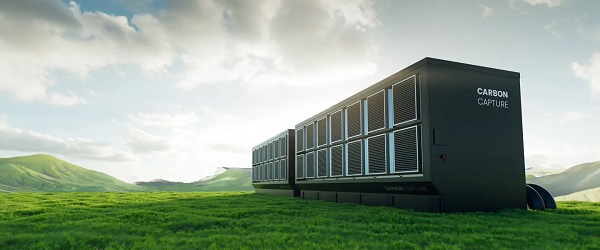
From the Fraser Institute
In case you missed it amid the din of Trump’s trade war, Prime Minister Carney is a big believer in “carbon capture and storage.” And his energy minister, Tim Hodgson, who said it’s “critical to build carbon capture systems for the oilsands,” wants the Smith government and oilsands companies to get behind a proposed project (which hasn’t been unable to raise sufficient private investment) in Cold Lake, Alberta.
The term “carbon capture and storage” (or CCS) essentially refers to technology that separates carbon dioxide (CO2) from emissions and either stores it or uses it for other products. Proponents claim that CCS could replace other more ham-handed climate regulations such as carbon taxes, emission caps, etc. The problem is, like many (or most) proposed climate panaceas, CCS is oversold. While it’s a real technology currently in use around the world (primarily to produce more oil and gas from depleting reservoirs), jurisdictions will likely be unable to affordably scale up CCS enough to capture and store enough greenhouse gas to meaningfully reduce the risks of predicted climate change.
Why? Because while you get energy out of converting methane (natural gas) to CO2 by burning it in a power plant to generate electricity, you have to put quite a lot of energy into the process if you want to capture, compress, transport and store the attendant CO2 emissions. Again, carbon capture can be profitable (on net) for use in producing more oil and gas from depleting reservoirs, and it has a long and respected role in oil and gas production, but it’s unclear that the technology has utility outside of private for-profit use.
And in fact, according to the International Institute for Sustainable Development (IISD), most CCS happening in Canada is less about storing carbon to avert climate change and more about stimulating oil production from existing operations. While there are “seven CCS projects currently operating in Canada, mostly in the oil and gas sector, capturing about 0.5% of national emissions,” CCS in oil and gas production does not address emissions from “downstream uses of those fuels” and will, perversely, lead to more CO2 emissions on net. The IISD also notes that CCS is expensive, costing up to C$200 per tonne for current projects. (For reference, today’s government-set minimum carbon market price to emit a tonne of CO2 emissions is C$95.) IISD concludes CCS is “energy intensive, slow to implement, and unproven at scale, making it a poor strategy for decarbonizing oil and gas production.”
Another article in Scientific American observes that industrial carbon capture projects are “too small to matter” and that “today’s largest carbon capture projects only remove a few seconds’ worth of our yearly greenhouse gas emissions” and that this is “costing thousands of dollars for every ton of CO2 removed.” And as a way to capture massive volumes of CO2 (from industrial emission streams of out the air) and sequestering it to forestall atmospheric warming (climate change), the prospects are not good. Perhaps this is why the article’s author characterizes CCS as a “figleaf” for the fossil fuel industry (and now, apparently, the Carney government) to pretend they are reducing GHG emissions.
Prime Minister Carney should sharpen his thinking on CCS. While real and profitable when used in oil and gas production, it’s unlikely to be useful in combatting climate change. Best to avoid yet another costly climate change “solution” that is overpromised, overpriced and has historically underperformed.
Energy
Is Carney ‘All Hat And No Cattle’?

From the National Citizens Coalition
By National Citizens Coalition President Peter Coleman
Mark Carney promised to lead Canada with bold vision and economic strength. But his latest stall tactics on removing red tape for Canadian oil and gas, his floundering in tariff negotiations despite lofty “elbows up” promises, and his refusal to address shocking interference allegations tied to his public safety minister so far show that he’s all hat and no cattle.
Today, Prime Minister Mark Carney held consultations and conversations with Indigenous groups on Bill C-5, which claims to fast-track “nation-building” energy projects. Yet he announced no major approvals on the horizon, and impressed no urgency or authority upon those in attendance who would seek to claim veto over vital projects.
Canada doesn’t need more endless talk or one bill to pick more losers than winners. We need action to remove anti-resource laws and regulatory roadblocks that choke our energy sector. Projects like pipelines and LNG facilities are critical for jobs, economic growth, and energy security, but they’re stalled by bureaucratic overreach and outdated policies. Hard-working Canadians deserve affordable energy. Our economy needs rescuing from tariff threat and a decade of Liberal sabotage. And Indigenous communities deserve real economic partnerships, not more delays and cowardly half-measures that often only placate anti-resource interests and insiders, not the real needs of the community.
Streamlined approvals with clear economic benefits will unlock prosperity for all Canadians. Carney’s stall tactics only hold back progress. It’s time to cut the red tape and get out of the way so that real Canadian leaders, and our great Canadian workers, can rebuild Canada after all that’s been broken.
Carney campaigned as the economic genius who could handle U.S. President Donald Trump’s tariff threats. Yet, with Trump’s August 1 deadline for a 35% tariff on Canadian goods approaching, Carney’s negotiations are going nowhere. His vague promises do nothing to protect Canadian jobs, industries, or families facing higher costs. Canadians deserve a leader who delivers results, not one who breaks campaign promises with empty rhetoric.
Meanwhile, he’s been shielding corruption and dodging accountability. Carney, now revealed to have 16 pages of conflicts that were kept from voters during the election, continues to protect Public Safety Minister Gary Anandasangaree, who faces serious allegations of lobbying for those with listed terrorist ties. Instead of demanding transparency, Carney is shielding his minister from scrutiny, doubling down on the Liberal tradition of dodging accountability. Canadians deserve a government that upholds integrity, not one that buries troubling connections to protect political allies. Is Carney just like Justin, who broke immigration and invited rampant foreign interference into government? Because this response is right out of his predecessor’s playbook.
Mark Carney’s leadership has been all talk and no action. Canada needs a government that unleashes our energy potential, lives up to its lofty campaign promises, and roots out corruption; not another Justin Trudeau.
We’re not falling for it. And neither are you. Demand action. Demand results.
–Peter Coleman, President, National Citizens Coalition
-
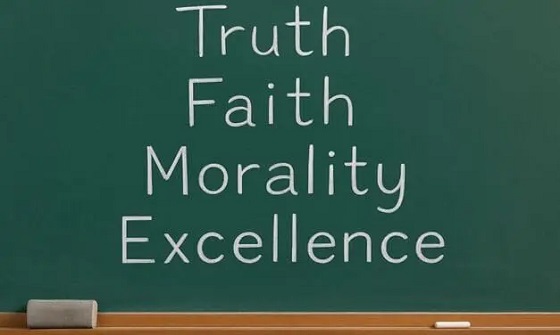
 Education1 day ago
Education1 day agoWhy more parents are turning to Christian schools
-
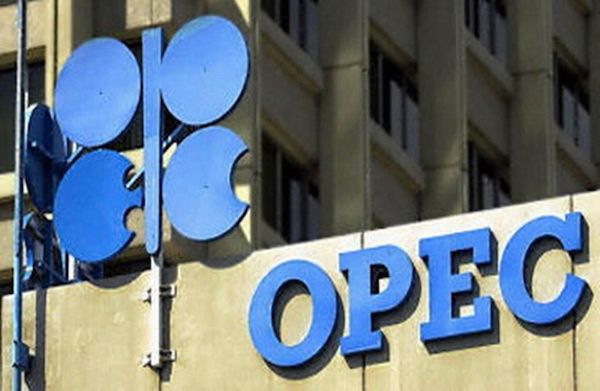
 Alberta1 day ago
Alberta1 day agoOPEC+ is playing a dangerous game with oil
-
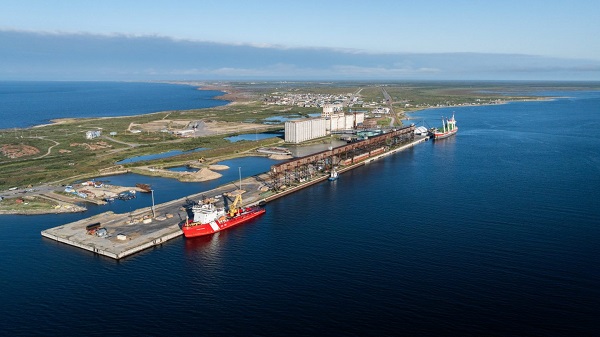
 Alberta1 day ago
Alberta1 day agoUpgrades at Port of Churchill spark ambitions for nation-building Arctic exports
-
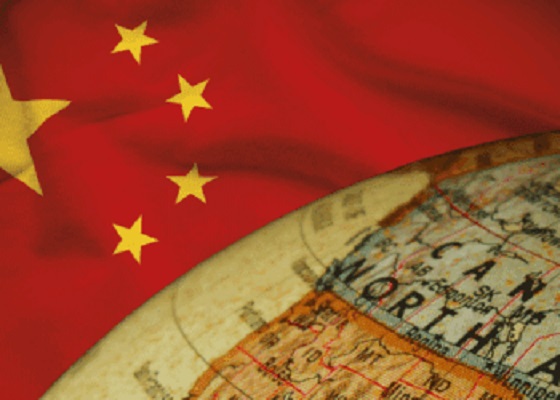
 Business1 day ago
Business1 day agoIs dirty Chinese money undermining Canada’s Arctic?
-
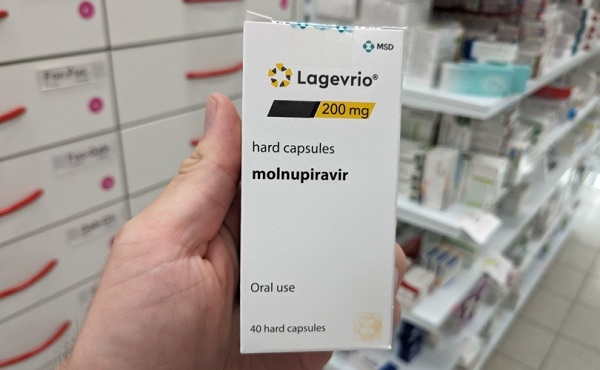
 COVID-191 day ago
COVID-191 day agoJapan disposes $1.6 billion worth of COVID drugs nobody used
-

 conflict1 day ago
conflict1 day agoOne of the world’s oldest Christian Communities is dying in Syria. Will the West stay silent?
-
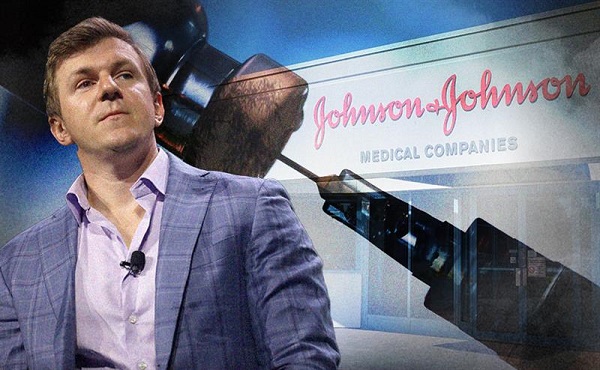
 COVID-191 day ago
COVID-191 day agoWATCH: Big Pharma scientist admits COVID shot not ‘safe and effective’ to O’Keefe journalist
-

 Bruce Dowbiggin1 day ago
Bruce Dowbiggin1 day agoHow Did PEI Become A Forward Branch Plant For Xi’s China?








